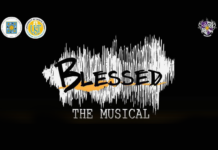IT IS not common knowledge that American Episcopalian minister and Yale-trained historian William Henry Scott cracked the Code of Kalantiao and exposed it as a hoax.
It’s even more uncommon knowledge that Scott’s expose was part of his dissertation in UST, where he took up his doctorate in History in the 1960s.
Both uncommon revelations are disclosed in the original contemporary drama, Fake, written by award-winning playwright Floy Quintos and staged by the University of the Philippines (UP) Playwrights Theater last May at UP Diliman’s Teatro Hermogenes Ylagan.
As the title more than suggests, the Code of Kalantiao, which generations of Filipinos had known as an ancient penal code before the coming of the Spaniards, had been a sham all along, the product of history researcher Jose Marco’s fancy manipulation.
The play features controversial myths in Philippine history and combines them with a fictional plot that questions the Filipinos’ uncanny ability to believe irrevocably in things that are beyond logic.
“When I started writing the play in 2009, I knew only that I wanted to write about the human need to believe in something bigger than ourselves, bigger than the truth itself,” Quintos writes in his notes on Fake.
The story revolves around a skeptical man named Miguel, who believes that everything that is beyond reason is simply fake.
A man with a mission, he seeks to expose Sister Emily, a Marian seer, as a hoax.
Miguel’s own story unfolds. It turns out that he used to believe in the stories of Jose Marco, the infamous author of the Code of Kalantiao and La Loba Negra, about the avenging widow of General Bustamante who was killed by friars and ecclesiastics during an uprising.
But Marco would be unmasked.
Scott would expose the Kalantiao as a fraud right in front of Miguel and Marco’s wife, Concepcion. This incident scarred Miguel and pushed him to question everything that people strongly believed in, including Sister Emily and her Marian apparitions.
But, fate and faith leave Miguel aghast when in the end, the Virgin makes an appearance and even offers a rose to Miguel through Sister Emily.
Aside from the set and acting, what made the story highly effective was how it toyed with the audience’s emotions as it moved from one act to the other.
In real life, Marco and Scott did not meet. The confrontation in the play is Quintos’ interpretation of what might have occurred if the two had the chance to converse about the history that Marco fabricated.
While the script built up momentum for the climax that was enough to turn any devotee into a skeptic, the play’s ending offered a simple and enlightening premise that is still very relevant today—it is unfortunate that people’s petty faith swiftly turns into bickering when the outcome of things do not align with their desires especially when the need to believe overtakes human reason.
The diverse cast included film director Joel Lamangan as Jose Marco and seasoned thespian Ces Quesada along with editor-writer Alya Honasan who took turns playing Concepcion.













